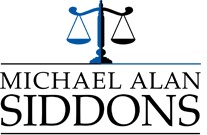Chapter 7 bankruptcy is often referred to as the “liquidation” bankruptcy because the bankruptcy trustee will liquidate property to pay your creditors before discharging certain remaining debts.
While it may not sound attractive to have your property seized and liquidated, an experienced bankruptcy can help you find ways so that the benefits of Chapter 7 far outweigh any liquidation you may experience. The following is some basic information regarding Chapter 7 bankruptcy.
Chapter 7 Bankruptcy Means test
In order to qualify for Chapter 7, you must pass a test called the “means test.” This test analyzes your assets, income, and debts to determine whether you actually have enough money to pay your bills. If you do not pass the means test, there are other options such as Chapter 13 bankruptcy.
Automatic stay
As soon as you file for Chapter 7 bankruptcy, a court order goes into effect called the automatic stay. This order halts any debt collection attempts, including repossession, foreclosure, or judgment enforcement. This can provide instant relief if you were dodging creditors or fearing the loss of your home or car.
Applying exemptions
An attorney can help you apply bankruptcy exemptions to ensure you can keep as much property as possible. Some exemptions available to filers in New Jersey can include a certain amount of personal property, certain financial benefits, equity in your home or car, among many others. An attorney can help you decide how to best apply state or federal exemptions based on your individual situation and property.
Discharge of debts
Once the bankruptcy trustee has liquidated non-exempt property that you had, the court can discharge many of your remaining debts. Not all debts qualify for Chapter 7 discharge, however, though the following debts may be discharged:
- Medical bills
- Most legal judgments
- Some tax debts
- Credit card debt
- Unsecured personal loans
- Loans from family or friends
Discharge means that the debt is erased and you have no further obligation to pay that debt. In addition, creditors cannot legally come after you seeking payment for discharged debts. While Chapter 7 may not discharge mortgages, car loans, or most student loans, it can free up funds to cover those bills.
Call an Experienced Chapter 7 Bankruptcy Attorney to Discuss your Situation
At the Law Office of Michael Alan Siddons, we have helped many people regain financial control through Chapter 7 bankruptcy. If you would like to discuss whether bankruptcy is right for you, please call our New Jersey, Pennsylvania, and Maryland bankruptcy attorney at 610-255-7500 today for a free consultation.











